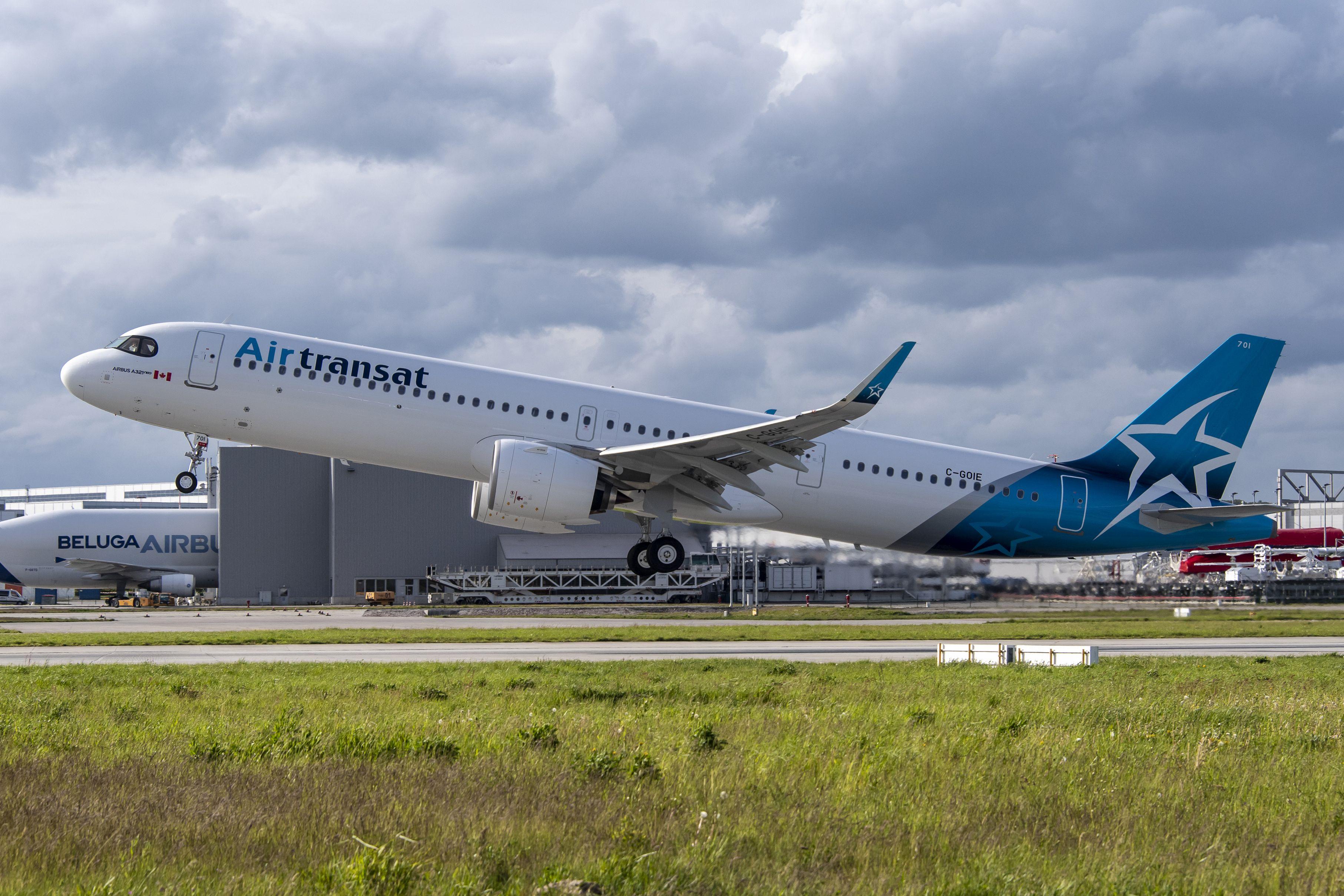
Air Canada has cut tentative deals to have heavy maintenance for its Airbus A330s and A220s done in Quebec, providing an economic boost to the province that is tied to the completion of its Air Transat acquisition.
One letter of intent (LOI) would see AAR Corp. add A330 airframe heavy maintenance at its Trois-Rivières facility to serve the combined Air Canada-Air Transat fleet of 33 aircraft. The other would see Avianor set up an A220 heavy maintenance facility in Mirabel, where Airbus Canada—formerly the Bombardier CSeries program—produces the aircraft. Air Canada has 45 A220s on order and options for 30 more.
Both LOIs must be finalized, and one of the caveats is approval of Air Canada’s acquisition of Air Transat. The transaction, approved by shareholders, is being reviewed by regulators in Canada, Europe, and “one or two others,” Air Canada president and CEO Cal Rovinescu told analysts on a recent earnings call. The timing of an approval is fluid, but the earliest Air Canada expects the go-ahead is May, he added.
Among the concerns expressed over the deal: its effect on Quebec. Air Canada and Air Transat are both based in Montreal, but Air Canada’s primary hub is in Toronto. Air Canada has said it will continue to operate Air Transat as a separate entity, with a Montreal headquarters. Adding provincial jobs through the MRO agreements provides tangible benefits for Quebec—a factor that should bolster the deal’s chances in winning Canadian regulatory approval.
Air Canada says the agreement will give the combined corporate entity enough A330s to justify anchoring current A330 work done outside of Canada and supporting a “center of excellence” at Trois-Rivières. Air Canada operates 13 A330s, and recently invested more than $200 million in cabin refurbishments.
AAR acquired its Trois-Rivières facility from Premier Aviation in 2017 and reached deals to perform A320 and Embraer E190 maintenance at the facility for Air Canada. The E190 is being phased out, but the Air Transat deal will add Airbus narrowbodies, including new A321s, that will be maintained at Trois-Rivières.
The U.S.-based MRO provider plans to invest in the facility to prepare for the A330 and would pursue third-party work.
“AAR is proud to support the Canadian economy and to grow our overall footprint in Trois-Rivières, especially for the A330,” AAR chief commercial officer Chris Jessup said.
The Avianor A220 deal would be a 10-year agreement and give the MRO provider an anchor tenant for a planned 250,000-sf maintenance and completions hangar in Mirabel. The company provides A220 pre-delivery support, and in November 2019 earned Transport Canada approval for A220-family MRO services, including post-delivery modifications and service bulletins.
“The Air Canada work will position Avianor to attract airframe maintenance work from other A220 operators, as well to encourage other suppliers of the A220 to consider establishing operations nearby, thereby contributing to the establishment of a North American center of excellence in Mirabel,” Air Canada said.
The moves also help Quebec claw back more of the heavy maintenance work it lost in 2012 when Aveos, the former Air Canada Technical Services, went under. Left without an A320 heavy-check provider, Air Canada turned to AAR, which set up at a former Northwest Airlines facility in Duluth, Minnesota with support from state and local governments.
Aveos’ failure triggered several lawsuits, including one from the Quebec government that sought to force Air Canada to keep work in the province per a 1988 agreement that privatized the carrier. The suits were later settled, paving the way for AAR to do the Airbus work in the U.S. After its Premier acquisition, AAR transitioned the Air Canada A320 work to Canada.





